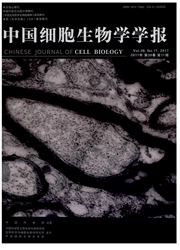

 中文摘要:
中文摘要:
mTOR(mammalian target of rapamycin)是丝氨酸/苏氨酸蛋白激酶,在感受营养信号、调节细胞生长与增殖中起着关键性的作用。mTOR可磷酸化p70^56K和4E-BP1,促进蛋白质合成。mTOR的活性受氨基酸尤其是亮氨酸浓度的调节,生长因子及能量水平也能通过AMPK调节mTOR活性。P13K/Akt和Akt/TSC1-TSC2两条信号通路都可调控mTOR活性,进而调节细胞的生长与增殖。mTOR信号通路的异常会导致肿瘤的发生,可以针对mTOR研制出治疗肿瘤的靶向药物。
 英文摘要:
英文摘要:
The mammalian target of rapamycin, mTOR, is a serine/threonine protein kinase that plays a crucial role in the nutrient-sensitive signalling pathway and the regulation of cell growth and proliferation, roTOR phosphorylates p70^56k and eIF4E binding protein-1 to promote mRNA translation. The activity of mTOR is regulated by the concentration of amino acids, especially leucine, as well as the growth factors and the overall energy supply by which the AMP-activated protein kinase is required. Two signalling pathways, i.e. PI3K/Akt and Akt/TSC1-TSC2 pathways, have been demonstrated to be critical in the regulation of mTOR activity. Abnormalities in the roTOR signalling pathway contributes to tumorigenesis; thus, therapeutic drugs might be designed which targets roTOR kinase.
 同期刊论文项目
同期刊论文项目
 同项目期刊论文
同项目期刊论文
 期刊信息
期刊信息
